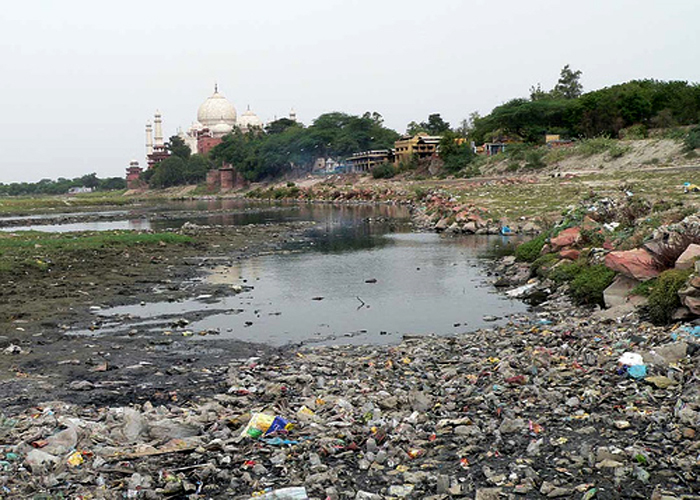The 'World Water Day' is celebrated every year on the 22nd of March to celebrate and acknowledge the role of water in our lives. Our planet is a aqueous planet. 75 % of the Earth is covered by oceans, which contain nearly 97% of Earth's water. 2% of water is locked in the Polar Ice Caps. Only 1% of fresh water is available for consumption by all life.
Some part of this water is available on the surface in the form of rivers, streams, nullahs, snow, dew etc. However, a major portion of the fresh water is underground. Rain is the primary source of fresh water on our planet. It is, however, important to note that the sum total of water on our Planet is constant.
 An important part of water is the ‘Water Cycle’. Water evaporates, forms clouds, and then falls as rain or snow. Seasons drive the water cycle. Until a few decades ago, this natural cycle provided adequate rain water for surface as well as underground water. A balance was maintained.
An important part of water is the ‘Water Cycle’. Water evaporates, forms clouds, and then falls as rain or snow. Seasons drive the water cycle. Until a few decades ago, this natural cycle provided adequate rain water for surface as well as underground water. A balance was maintained.
However, the start of the industrial revolution and rising population brought change. Transportations, factories, urbanisation etc led to large scale deforestation. Deforestation meant that fertile soil was being washed away, reducing the ability of the soil to absorb water and channel it under ground. Increasing concretisation of our cities meant that water could no longer percolate underground.
As if that wasn’t sufficient, industrialisation led to an increasing amount of “greenhouse gases” in our atmosphere, trapping more heat on the planet. Today, this energy trapped by GHGs is equivalent to exploding 400,000 Hiroshima type bombs. 90% of this energy is absorbed by the ocean.
The ambient temp of ocean increases, leading to more evaporation of ocean water. Warm air holds more water vapour. This causes a wobble in the water cycle. Rather than gentle rain, we now get heavy downpours, which cause problems globally.
The frequency of Extreme Climatic Events is on rise all over the world. Unseasonally heavy rain falls, hailstorms, heavy snowfall, category 5 cyclones etc are causing untold economic losses. The state of Maharashtra is facing regular delays for the start of the monsoon season, and inadequate rain fall during monsoon.
 In April 2014 Pune experienced 7 days of consecutive 40 c plus temperatures. Such occurrences are becoming common across the globe. Heavy rainfall in places and drought like situation in others is now becoming common occurrence.
In April 2014 Pune experienced 7 days of consecutive 40 c plus temperatures. Such occurrences are becoming common across the globe. Heavy rainfall in places and drought like situation in others is now becoming common occurrence.
Water is elixir of life. Our attitude towards this natural resource is USE & DISCARD. We still think that it is unlimited resource. Surface water is polluted due to ingress of untreated domestic sewage, untreated industrial effluent, agriculture run offs etc. All rivers in India are effective sewage drains.
Billions of rupees have been earmarked for cleaning of river Ganga. Similar mega projects are required for the other 445 river systems in India.
Since surface water is unfit for consumption, costly filtration plants are required to make it fit for consumption. Ground water level is also falling at alarming rate in many districts of India. Natural recharge to maintain the ground water level is disturbed due to rapid urbanisation. In Pune, the percolation rate is down from 35% to below 10%.
However the withdrawal of ground is much higher than the ground water recharge rate. This situation has led to shortage of water across the country. It is time we must change our outlook from use & discard to USE, RECYCLE, REUSE, RECHARGE, CONSERVE & DISCHARGE. It means recycling and reusing grey water. Similarly we need to recharge ground water through open / bore wells using rain water harvesting methods.
In 2010 United Nations declared safe drinking water & sanitation as the fundamental right of every human being. In India large number of our population is still deprived of access to safe drinking water, subjecting them to water borne diseases. On this World Water Day let us all RESPECT this all important life saving natural resource , WATER.

